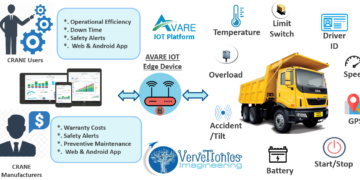What is Remote Auditing?
Remote Audit, also commonly known as e-audit, means conducting the internal audit program by digitally obtaining the required evidence and evaluating them with technology’s help. The strategy and objectives of remote Auditing are similar to those in conventional Audit; only the data is shared via the internet and not in person. Interviews and evaluation of the staff are conducted on phone \or video calls, and files can be transmitted through digital mediums like google drive, box, etc. Most companies specializing in IT Audit finance, Internal Audit, and other risk management services are now opting for e-audit. Read on to know about the benefits of remote Auditing and the challenges that companies face while conducting an off-site audit.
The advantages and disadvantages of Remote Auditing
Benefits of E- Auditing
1.Eliminating unethical travel
The most significant advantage of conducting an e-audit is that the auditor can avoid all the unnecessary hassle of traveling, ultimately saving the organization’s expenses. Some offices or sites are located in isolated areas, and some may even require visas or permits to visit. Performing audits via the internet can significantly reduce time and audit expenditure. With remote auditing facilities, an organization can appoint any highly reputed international auditing firm, which will increase the goodwill of their firm in the industry they specialize in. Moreover, in times like today, digital audit programs have become a necessity rather than an added advantage
2. Efficient Auditing –
Since the audit team will be working from their home or a personal office, they will be more comfortable with the environment, and their productivity will increase substantially. They will also be equipped with all the necessary tools such as auditing software, high-speed internet, printers, etc. The process will need fewer hours to complete a specific task compared to an offsite Audit.
3. Beneficial for Global Companies
The Companies that have multiple sites worldwide will gain the most from conducting remote audits. The audit team can audit multiple sites jointly without repeating the reviewing of standard processes and systems. The joint audit will significantly reduce the disruption to the employees as the number of meetings, interviews, therefore, decreases the cost of meeting spaces and other resources utilized in the office.
4. Save time and money
In Remote Auditing, most of the data is accessible online, so the time and cost of commuting to check the documentation is minimal. As far as interviews and observations are concerned, they can be conducted using platforms like Skype or Zoom, which are already used by the companies regularly.
5.A Prerequisite for the new normal
Remote auditing was the only feasible option at the time when the pandemic was on peak and the world was shut down. But, even with the world opening and people coming back to their offices, digitally conducting all possible types of audit like IT Audit Finance, internal auditing, etc, is a more preferable option. It will help maintain the minimum staff at the office premises, making social distancing easier. The audit team does not have to travel to the location, which reduces the chances of infection.
Barriers of E-Auditing
Just like every concept, Remote auditing too has its own challenges and barriers that can adversely affect the authenticity and efficiency of the audit program.
-
Remote audits are not accepted by all accreditation bodies-
Owing to the rapid technological development and, of course, Covid 19, the practice of conducting remote audits is gaining popularity everywhere in the world. However, some of the accreditation bodies still do not consider the e-audit valid. There are no provisions for accepting the remote audit, and only onsite audits are taken into consideration.
-
Longer audit timeframes –
Remote auditing gives the audit team the flexibility of working from their home office hence they will not be constrained to travel bookings or accommodation. This may prolong the time of the audit program, however, it totally depends on the audit team and their effectiveness.
-
Technological issues
The most common challenge that the company faces while conducting remote audits is technological barriers. When network connections are not that strong, the auditee can face difficulty accessing the VPN to log into a database to present the required evidence. Apart from this, the interviews and meetings can be interrupted due to network issues, extending the audit time.
Signing Off
We hope that this article gave you an insight into the advantages and challenges of remote auditing and it helps you decide whether your organization should opt for remote auditing or conventional audit. If your business is looking for expert IT audit finance, Internal Audits and other Risk & Regulatory Advisory services, contact the accume partners team at 646-753-5524 or drop an email at info@accumepartners.com
Read Also : Advanced Disk Recovery Review, Features, Pros, Cons, and Pricing






























































